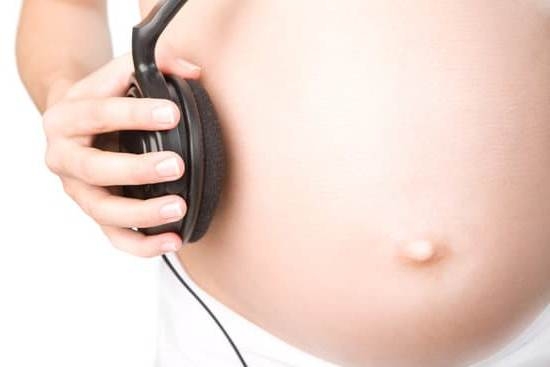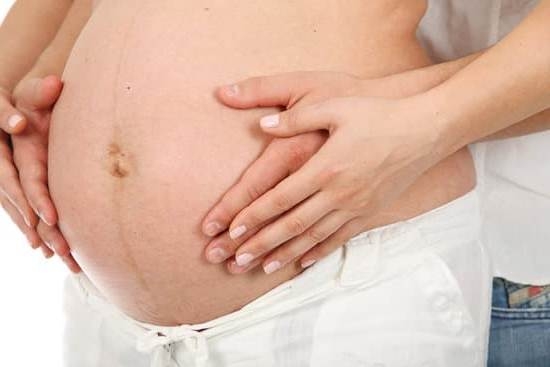Introduction
There are a few factors that can contribute to bruising easily during early pregnancy. The most common reason is due to the hormonal shifts associated with pregnancy. Hormones like progesterone work to relax blood vessels in the body, making them more prone to leaking when bumped or scratched. This can result in increased bruising. Additionally, as the uterus and other organs enlarge during pregnancy, there can be an increase in pressure on other areas of the body, leading to more easily bruised tissues, especially about the pelvis and abdomen. Lastly, many women experience changes in their platelet counts during early pregnancy due to changes in diet and lifestyle which may also contribute to bruising more easily than normal.
Causes and Risk Factors
During pregnancy, your body produces a lot of the hormone progesterone, which relaxes the walls of your blood vessels and can lead to easier bruising. As a result of this increased hormone production, pregnant women often experience more frequent or severe bruising than they would normally have. Other factors that may contribute to bruising during pregnancy include changes in diet, weight gain, and lesser known things like inadequate calcium intake. Additionally, as your growing baby moves around inside you and jostles against vessels (especially in the third trimester), it can cause bleeding beneath the skin which gradually forms into a bruise. Pregnancy can also lead to anemia, which can make blood vessels more fragile and prone to bruise more easily. Finally, some types of medication taken while pregnant can increase your risk for developing bruises.
Diagnosing Bruising Easiness in Early Pregnancy
In early pregnancy, there can be an increased susceptibility to bruising. This may lead to fragility of the capillaries that provide blood vessels in the skin and cause what are called petechiae. Petechiae are tiny spots of red or purple discoloration on the skin caused by broken capillaries beneath its surface. Bruising during early pregnancy can also include larger bruises known as ecchymoses and areas of discolored skin called purpura.
To diagnose if you’re bruising more easily due to early pregnancy, it is important to look at any potential causes of bleeding or bruising outside of your pregnancy. These can include dietary deficiencies, such as vitamin C or K deficiency; hormone changes associated with the menstrual cycle; certain medications such as aspirin and anticoagulants; and diseases that affect the clotting process such as liver disease or Lupus. If any of these external factors have been ruled out, then it is likely that during your early pregnancy you may bruise easier than usual
You should also pay attention when brushing your teeth, combing your hair, or manicuring your nails. It’s possible to experience petechiae from something as simple as flossing your teeth too vigorously, which can lead to broken capillaries in the gums.
In some cases, tiredness and fatigue can also contribute to easy bruising due to thinner skin leading up to conception. It is recommended that pregnant woman take time for extra rest and relaxation during their first trimester when possible because their bodies are going through many changes.
It usually difficult for a doctor or midwife alone to diagnose if you’re bruised easier because factors like physical trauma must first be examined before ruling out other causes since the nerves under your skin might become overly sensitive while pregnant resulting in easy bruising therefore proper medical examinations should be taken seriously at all times if bruising occurs during early stages of pregnancy.
Different Types of Bruising in Early Pregnancy and Treatment Options
During the first trimester of pregnancy, the female body experiences many physical changes. Much of these changes are due to changes in hormone levels and an increase in blood circulation. As a result, bruising can occur more easily during this period. Common types of bruising in early pregnancy include:
1. Petechiae: Small reddish or purple spots caused by tiny broken capillaries that appear around the chest and neck area. These bruises usually last for one or two weeks and usually don’t require any special treatment.
2. Ecchymoses: Large, dark-purple patches on the skin which are caused by larger broken blood vessels and commonly appear on knees, thighs, arms and other areas close to the surface of the skin. Most ecchymoses subside without special treatment in a couple of weeks or so; however if you see a large purple patch appearing several days after trauma then it is best to seek medical advice as there may be internal bleeding too.
3. Hematomas: Swellings caused when blood collects between tissues beneath the skin following direct contact from trauma (e.g., bike falling onto your arm). The bruise may range from red to blue in color according to its age but is generally square or round in shape with clear edges compared to other types of bruises discussed above though still tender when touched should not be tender for longer than two weeks otherwise visit a doctor for further evaluation as this type of bruise can also indicate some underlying health issues e.g., thyroid problems etc). Appropriate treatments depend on how large or serious the hematoma is; some hematomas cause mild swelling that requires rest while others may involve medical procedures such as drainage through surgical incisions into larger internal organs like liver or kidneys etc.
Prevention Tips
Though it is common for pregnant women to experience skin sensitivities and easy bruising, there are ways you can prevent excessive bruising from occurring during early pregnancy. Here are some tips on how to avoid bruising:
1. Increase your intake of vitamin K: Vitamin K is a fat-soluble vitamin found in green leafy vegetables like spinach, kale and cabbage that helps maintain proper blood clotting. Increasing your intake of Vitamin K during pregnancy can help strengthen the walls of your capillaries, making them less prone to breaking and causing bruises.
2. Avoid rigorous physical activities: Rigorous or intense physical activities or sports can increase the risk for accidental injury which can lead to bruising. During early pregnancy it’s best to avoid vigorous activity and instead opt for gentler forms of exercise such as walking and swimming.
3. Wear loose-fitting clothing: Pregnancy increases your body temperature so wearing tighter clothes can restrict blood flow which can cause sensitivity in those areas; this includes bras and waistbands as well. Wearing looser-fitting clothing will lessen the pressure on affected areas and give increased circulation for better tissue health.
4. Apply cold compresses: If you do happen to have a bruise, applying an ice pack directly onto the area several times throughout the day can help reduce swelling while also numbing any pain caused by the bruise..
When to Contact a Medical Professional
If you notice that your skin is suddenly bruising more easily during early pregnancy, be sure to contact your healthcare provider. Your healthcare provider can provide advice and reassurance on what may be causing the bruises, as well as orders tests if necessary to diagnose any underlying issue. In addition to a physical examination, they may also ask you questions regarding your daily activities which could explain the bruising. It is important to note that in many cases, bruises can be normal occurrences during early pregnancy due to an increase in blood flow and hormone changes that cause the blood vessels beneath your skin to become more fragile. If however you are noticing bruising frequently or in places that don’t correspond with a recent activity or trauma, it may be a sign of an underlying medical condition such as vitamin deficiencies or platelet problems (which decreases clotting) and should be addressed by a medical professional.
Home Remedies
Applying home remedies for bruising during pregnancy can be beneficial for a number of reasons. They can help to ease discomfort, reduce inflammation, and improve circulation. Many times the bruising can occur as a result of pressure from the ever-growing baby bump. Home remedies for bruises such as cold compresses or homemade treatments like witch hazel may provide relief from these symptoms and direct pressure in some cases. Additionally, home remedies are typically safe to use when pregnant and do not have any of the potentially harmful side effects common with over-the-counter medication.
Conclusion
The answer as to whether or not you are likely to bruise easier in early pregnancy is yes. While no two pregnancies are exactly alike, it is common for pregnant women to experience an increase in bruising, especially during their first trimester. This bruising can result from the influx of hormones and an increase in blood volume. During this stage of pregnancy, a woman’s body produces more estrogen and progesterone which can cause her blood vessels to be more fragile than usual.
To treat any potential bruising safely and healthy during your early pregnancy it is important to take steps that can reduce its occurrence:
1.Take extra care when exercising or engaging in activities that may involve physical contact with other people or objects such as sports activities, yoga, etc.
2.Be sure you are wearing appropriate supportive sports gear including a protective belt if necessary for your activity level and use proper footwear such as cross trainers with strong support features.
3.Keep your skin well hydrated through regular moisturizing and exfoliating twice a week with natural spa products made specifically for sensitive skin .
4.Stay away from cold temperatures which can cause further damage to already weakened veins leading to increased bruising
5.Avoid hot showers and baths which can contrast with colder outside temperatures leaving your skin more prone to injury
6.Talk to your doctor about any medications you may be taking that could affect the fragility of your veins and capillaries leading to increased bruising – some medicines like aspirin may need to be avoided during pregnancy due to its potential risk on both you and baby’s well-being
7.Eat plenty of seafood that is high in Omega 3 fatty acids as these will help nourish the fragile areas of your skin from within leading to minimized levels of bruising

Welcome to my fertility blog. This is a space where I will be sharing my experiences as I navigate through the world of fertility treatments, as well as provide information and resources about fertility and pregnancy.





